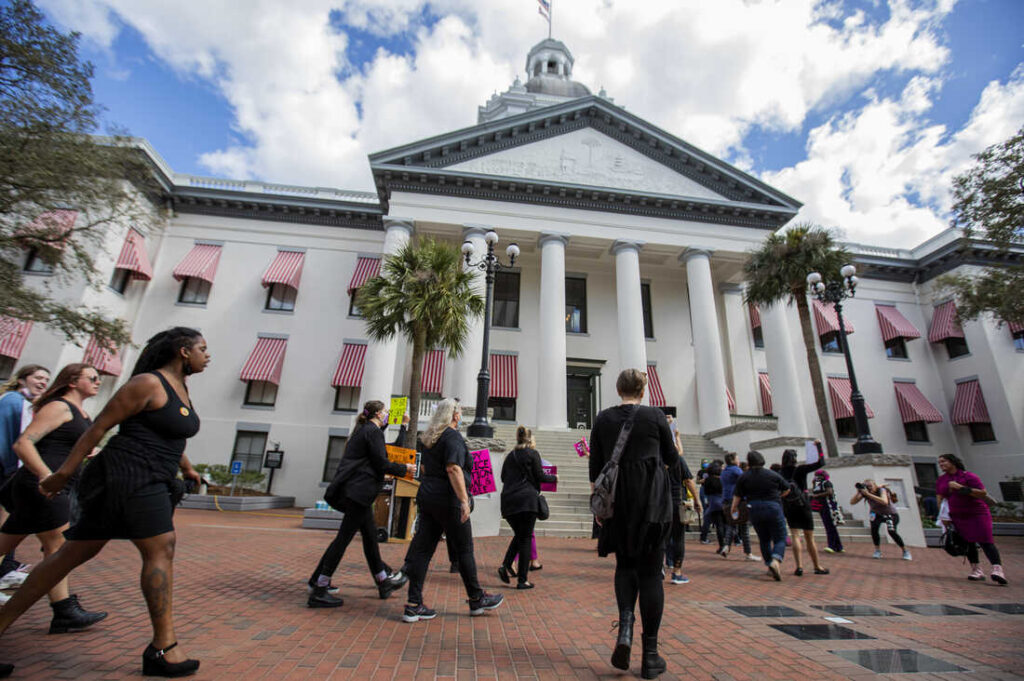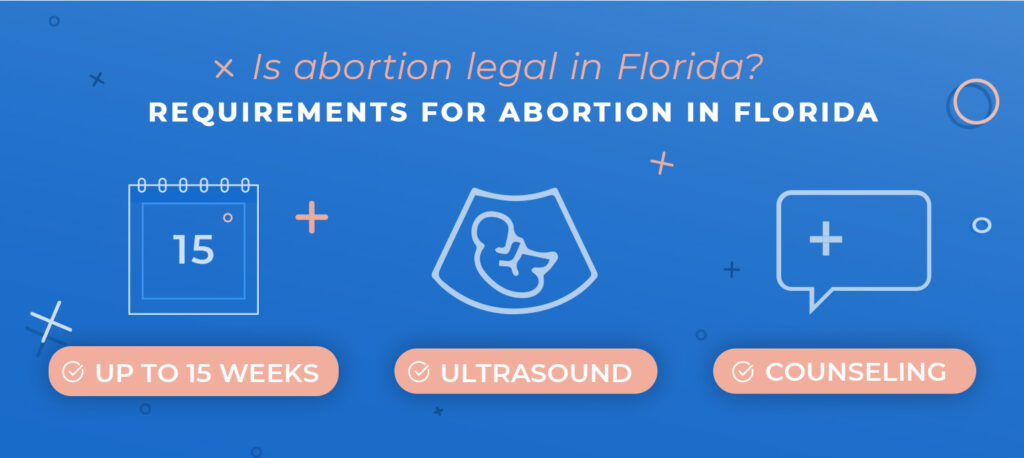
Before Roe v. Wade
The memory of Roe v. Wade has brought the United States through numerous phases. Specifically, Florida has gone through various changes in regards to the memory of Roe v. Wade and other abortion laws. Florida provided citizens with a constitutional right of a freestanding privacy policy [2]. That policy was challenged in 1989 when In re T.W. appeared before the Florida Supreme Court. The In re T.W. case stated that “Prior to undergoing an abortion, a *1189 minor must obtain parental consent or, alternatively, must convince a court that she is sufficiently mature to make the decision herself or that, if she is immature, the abortion nevertheless is in her best interests [3].” This case requires parental consent before a mother can proceed with an abortion which conflicted with Florida’s constitution of privacy. The overall problem of this was that Florida had two constitutional protections, a general privacy right along with a privacy right protecting an individual’s decisions relating to medical care, and one constitutional provision, In re T.W. [2].
Recent Abortion Laws
As of July 1, 2022, Floridians went from being able to receive an abortion up to 24 weeks of pregnancy (in memory of Roe v. Wade) to not be able to receive an abortion after the 15th week of pregnancy (Roe v. Wade being overturned). An exception to an abortion procedure being legally performed after the 15th week would be if the mother could potentially result in serious injury or death, or if the fetus has a fatal abnormality [4]. More restrictions that were placed into effect on June 28, 2022 include: a patient must receive mandatory state directed counseling, a parent must provide consent for the abortion, an ultrasound must be provided for the mother, health plans and public funds will only be provided in cases such as rape or incest, and for life threatening cases an abortion can be provided after 24 weeks of the last menstruation cycle [5].
Additionally, on July 1 2022, the HB5 law prohibited any abortions to take place if the gestational, “gestation was defined in HB5 (2022) as being calculated from the first day of the woman’s last menstrual period,” age of the fetus was after 15 weeks. This was implemented to “reduce fatal and infant mortality [1].” Although as of April 3, 2023, Florida passed a new Heartbeat Protection Act. The passing of this act prohibits any abortions to take place after 6 weeks of pregnancy. Certain circumstances have been made an exception such as incest, rape, human trafficking, or diagnosed fetal fatal abnormality which extends the abortion cut off back to 15 weeks [6]. Senator Grall spoke on the Bill that was passed, “This bill represents an unprecedented opportunity to protect innocent life, and to stand with the brave moms who choose life for their babies. For 50 years, it was legal in this country to kill unborn children, and during that time, abortion has touched every single one of us. We have to grieve for what we have done as a country. This bill makes certain our laws reflect the strongest protections for innocent life [6].” The senator also makes sure to emphasize how instead of promoting abortion they will promote adoption and support families who have the proper resources to take care of children in the system.

Florida’s Agenda
It is important to mention how Florida provides numerous ways of support for those who “choose life for their babies [6]”. SB 300 in Florida states that counseling and mentoring sessions will be provided for the families if wanted. Another way the Florida government provided support includes assisting with non-medical materials such as cribs, car seats, clothing, formula, etc., for the child. In addition, SB 2500 includes ~$475 million dollars towards postpartum care coverage on top of the $30 million of new funding that was included in the SB 300. The SB 300 also calls for in person abortions and prohibits abortion medication to be delivered by mail [6]. From these bills it appears that Florida representatives want to give the impression that the mental and physical health of the mother and the status of the fetus is a top concern. The incentives provided for not partaking in abortions try to cover up the cultural memory of Roe v. Wade.
A notable observation from the words of Senator Grall is that she never mentioned the word “fetus”, instead she continuously referred to it as an unborn child. This leads to the possible assumption that Florida’s representatives believe the status of a fetus as an entity is a human life with rights. In connection to this, Thomas Jefferson wrote in the Declaration of Independence how everyone deserves the right to life, liberty, and the pursuit of happiness. Since an embryo forms a heartbeat after about 6 weeks, the Florida government passed this Heartbeat Protection Act in order to protect what they consider a life. According to Florida, this means the fetus has unalienable rights in memory of our Declaration of Independence.
By: Anaya Williams
Works Cited
[1] CS/HB 5 (2022) – Reducing Fetal and Infant Mortality. Bills for the Regular Session 2023 | Florida House of Representatives. (n.d.). Retrieved April 21, 2023, from https://www.myfloridahouse.gov/Sections/Bills/bills.aspx
[2] Gordon, Daniel R. “One Privacy Provision, Two Privacy Protections, The Right to Privacy in Florida after Roe v. Wade.” HeinOnline, https://heinonline.org/HOL/Page?handle=hein.journals/wiswo5&div=6&g_sent=1&casa_token=&collection=journals
[3] In Re TW.” Justia Law, https://law.justia.com/cases/florida/supreme-court/1989/74143-0.html
[4] Selene San Felice, B. M. (2022, June 24). Roe v. Wade: Is Abortion Legal in Florida? Axios. Retrieved April 21, 2023, from https://www.axios.com/local/tampa-bay/2022/06/24/roe-v-wade-overturned-florida
[5] State facts about abortion: Florida. Guttmacher Institute. (2022, August 30). Retrieved April 21, 2023, from https://www.guttmacher.org/fact-sheet/state-facts-about-abortion-florida
[6] The Florida Senate. Press Release – The Florida Senate. (n.d.). Retrieved April 21, 2023, from https://www.flsenate.gov/Media/PressReleases/Show/4437
Images
https://www.npr.org/2022/02/17/1081450530/florida-house-abortion-ban

